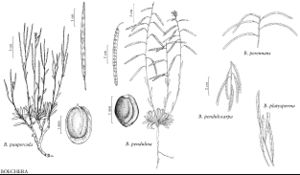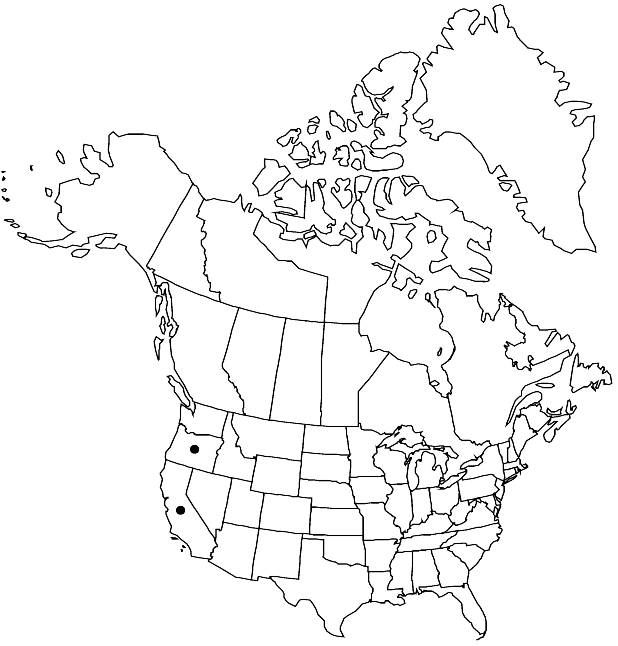Difference between revisions of "Boechera platysperma"
Novon 13: 388. 2003.
FNA>Volume Importer |
FNA>Volume Importer |
(No difference)
| |
Revision as of 20:23, 24 September 2019
Perennials; long-lived; sexual; caudex woody. Stems usually 1 per caudex branch, arising from center of rosette, elevated on woody base above or near ground surface, 0.6–2.8(–3.5) dm, densely pubescent proximally, trichomes short-stalked, 2–5-rayed, 0.1–0.3 mm, glabrous or sparsely pubescent distally. Basal leaves: blade narrowly oblanceolate, 3–7(–10) mm wide, margins entire, ciliate near petiole base, trichomes (simple or spurred), to 1 mm, surfaces densely pubescent, trichomes short-stalked, 2–4 (or 5)-rayed 0.1–0.3 mm. Cauline leaves: 3–7(–12), not concealing stem; blade auricles absent, surfaces of distalmost leaves glabrous or sparsely pubescent. Racemes 2–7-flowered, unbranched. Fruiting pedicels ascending, straight, 3–13 mm, glabrous or sparsely pubescent, trichomes appressed, branched. Flowers ascending at anthesis; sepals pubescent; petals creamy white to purplish, 4–6 × 1–2 mm, sparsely pubescent (often some trichomes abaxially); pollen ellipsoid. Fruits ascending, not appressed to rachis, not secund, straight to slightly curved, edges undulate (not parallel), (2.5–)4–8.5 cm × 3–5.5 mm; valves glabrous; ovules 16–44 per ovary; style 0.05–1 mm. Seeds uniseriate, 3–6(–8) × 2–3.5 mm; wing continuous, 0.8–2.5 mm wide. 2n = 14.
Phenology: Flowering Jun–Aug.
Habitat: Rock outcrops and gravelly soil in dry pine forests and lodgepole-chaparral woodlands
Elevation: 1600-3000 m
Discussion
Previous authors have adopted broader circumscriptions of Boechera platysperma, including plants herein called B. covillei, B. elkoensis, and B. howellii. In our opinion, the differences between these taxa are sufficient to justify their treatment as distinct species (see M. D. Windham and I. A. Al-Shehbaz 2006, 2007, 2007b for detailed comparison). Reports of B. platysperma from Nevada (e.g., R. C. Rollins 1993; N. H. Holmgren 2005b) are based on plants of B. howellii or apomictic hybrids with other species.
Selected References
None.

